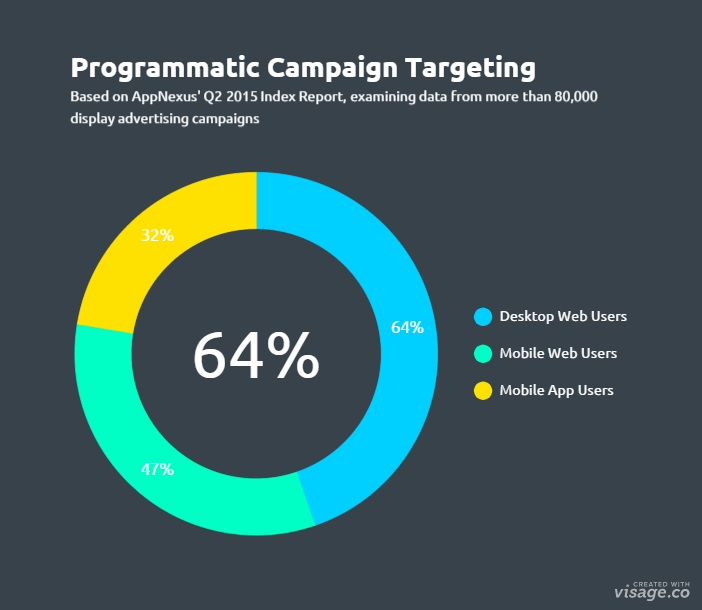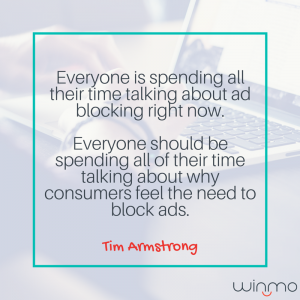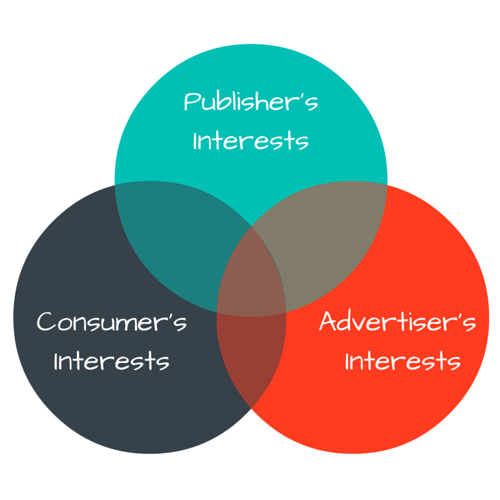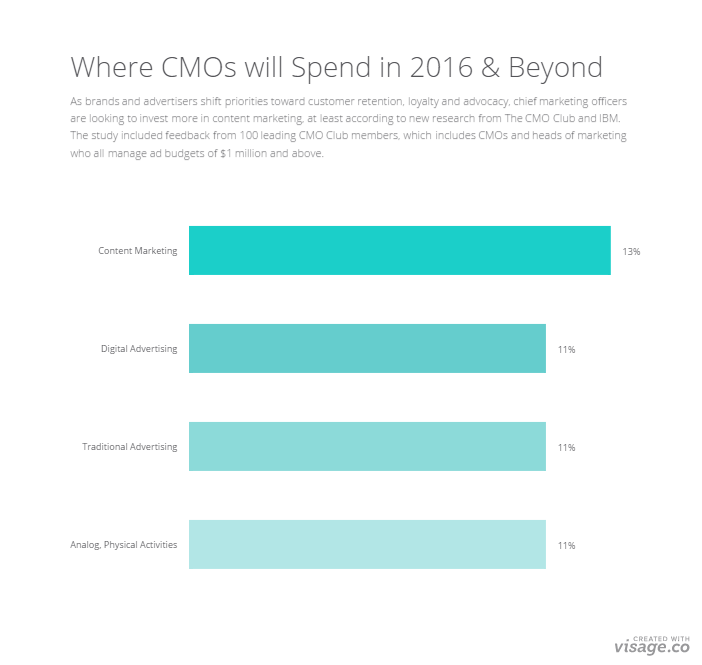Digital advertising is forcing marketers and advertisers to take a more human approach to sales and marketing by creating experiences instead of traditional banner ads.
However, that doesn’t necessarily spell disaster, especially for marketers and advertisers who are able to pivot quickly and adapt new inventory and service/product offerings.
For that reason, we’ve compiled a list of key trends with the highest profitability for your sales team. We hope these facts will maximize prospecting efficiency and empower you to win more business this year.
1. Programmatic marketers are still catching up with mobile trends
By and large, programmatic display ads are still being served primarily to desktop users, despite the fact that almost 50 percent of web traffic comes from mobile devices.
According to recent data released by AppNexus, programmatic marketers are still playing catch up when it comes to targeting and reaching users with mobile display ads or in-app ad placements.
AppNexus released a statement saying:
“[T]he mobile revolution, while certainly accelerating, has not yet hit its peak,” writes AppNexus. “Even though consumers are now spending more than half of their online time on mobile devices, advertisers were still more likely to target desktop Web users than those using mobile apps or browsing the mobile Web.”
If your business model has not yet integrated mobile advertising, now is the time to start — especially if you are in media sales.
According to ZenithOptimedia’s Advertising Expenditure Forecasts, mobile ad spend is projected to overtake newspaper advertising this year. The report estimates that mobile advertising will grow 38% in the next year, accounting for $71 billion.
2. Creative ads and storytelling are gaining traction as a solution to ad-blocking and content blocking
Ad blocking and ad fraud were hot button topics heading into 2016 and continue to stir the pot.
Ed Menecheschi, chief marketing officer of Conde Nast, believes that native advertising provides a “huge opportunity” for the advertising community. His recommendation is to “be great in your story. Be great in your execution.”
Similarly, Tom Peyton, assistant VP of Marketing at American Honda Motor, has said to “just make an ad everybody wants to watch. Make great content.”
So basically, the general theme coming from thought leaders throughout the marketplace is to build a better experience for the consumer through great content and creative, innovative advertising. The power dynamic has shifted in consumers’ favor, which means that marketers and advertisers will only engage target audiences and generate new business if they stop talking at audiences and start creating relationships with them instead.
3. Display ads across all formats and placements have 0.6% click through rate
Before ad-blocking hit the mainstream media, “banner blindness” was already a very real threat to publishers’ future revenue. Media buyers are constantly reallocating ad spend in an effort to maximize audience reach and ROI for business growth. Either way, these buyers would have shifted away from display ads eventually, it just may have taken a bit longer.
Of course, it’s not news to anyone in the industry that the vast majority of Internet users ignore display ads. And although remarketing campaigns can drive results for B2C companies — namely ecommerce — thought leaders like Joe Pulizzi, founder of Content Marketing Institute, question the measurable return on display advertising for B2B.
Even top decision makers like AOL CEO Tim Armstrong have voiced opinions about how irritating digital ads can be, especially on mobile. Recently, Armstrong made the statement that there are few things “more annoying than pop-ups on mobile.”
Also contributing to these insanely low click through rates is the fact that only 2.8% of users report seeing display ads that are either relevant to their interests or pain points. And although audience targeting technology has come a long way, in coming years the ad industry as a whole must adopt a much more human approach to digital advertising and media buying options.
By putting target audiences’ interests and pain points first with more personalized ad copy, industry professionals can avoid significant losses on current and future revenue opportunities with brands and advertisers.
4. Content marketing technology is a $1 billion industry that tops everyone’s list of important tech investments this year
Heading into 2016, content marketing is dominating the marketplace. According to PQ Media’s Global Content Marketing Forecast, this industry is projected to generate up to $313 billion in revenue by 2019. Does this sound far-fetched? Maybe.
However, If you think about this new “ad-block-alypse” threat and new programmatic buying capabilities, high quality content is going to be in higher demand than ever before.
Just since 2014, content marketing as a field, industry and technology has experienced unprecedented growth, generating more than $100 million from VCs alone. And according to a recent report, 59% of venture capital firms anticipate an even greater influx of investments moving foward.
It’s not just VCs looking to hold the lion’s share of the market either. Between mergers and acquisitions, big players like Facebook, Twitter, Fox, Verizon and CBS clearly see the value of content marketing technology, and seemingly, can’t buy companies fast enough.
Based on rising demand for creative advertising, the fact that media giants, advertisers and investors are doubling down on content is not at all surprising.
First and foremost, 65% of purchase decisions are influenced by custom content, with 55% of buyers becoming loyal to brands that provide custom content.
Secondly, recent studies show that content marketing technology is the top strategic focus for 85% of B2B marketers going into 2016. So, by all accounts this is one gravy train you don’t want to miss.
5. Wearable technology, personal assistants and IoT will reshape the marketplace
In 2015, Apple released the first generation of wearable “smart” devices. Arguably, there are some kinks that still need to be worked out, but this kind of technology will continue to gain traction in the next year.
Along that same track, with the continued improvements to personal assistants like Cortana and Siri, search engine marketers should prepare for a new kind of voice-activated search technology to peak the interest of brand marketers and advertisers alike.
Of course, both of these recent innovations are part of the burgeoning “Internet of Things” (IoT), which has already had a profound impact on the marketplace. New titles are emerging for VP of IoT and you can expect even bigger changes to come in the next few years.
Key Takeaways
Thanks for asking, Austin.
The fact that 57% of CMOs expect their marketing budgets to increase over the next 2-3 years is evidence of positive growth in the industry. As long as marketers and advertisers continue pivoting quickly and adopting creative, innovative solutions to technological roadblocks there will continue to be plenty of opportunities for long-term business growth.
So, take the actionable insight from this report and use it to gain an edge on the competition with a better business model that wins more!






